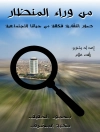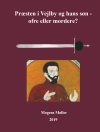In ‘Notes on the Aborigines of New South Wales, ‘ R. H. Mathews presents an invaluable compilation of observations and insights regarding the Indigenous peoples of Australia. This seminal work, written in a meticulous and systematic style, encompasses ethnographic details and descriptions of cultural practices, social structures, and ecological knowledge held by the Aboriginal communities. Contextually, it emerges from the late 19th century, a period marked by increasing European settlement and subsequent cultural disruptions, highlighting the importance of documenting Indigenous knowledge for posterity amid rapid change. R. H. Mathews, a noted ethnographer and a contemporary of the burgeoning field of anthropology, dedicated much of his life to the study of Aboriginal cultures. His experiences as a government surveyor often placed him in direct contact with Indigenous Australians, fueling his passion for documenting their languages and way of life. Mathews’ commitment to accurately portraying their realities stands as a testament to his respect for these cultures, particularly at a time when many were being undermined by colonial narratives. This book is highly recommended for scholars, students, and general readers interested in Indigenous studies, Australian history, or ethnography. Mathews’ extraordinary attention to detail and respectful portrayal offers a profound understanding of Aboriginal wisdom and resilience, making it a crucial addition to any collection focused on cultural anthropology and the histories of marginalized communities.
लेखक के बारे में
R. H. Mathews was an Australian surveyor and anthropologist known for his early and significant contributions to the study of Aboriginal cultures. His work at the turn of the 20th century laid foundational understanding for later anthropological research. Although not formally trained in anthropology, Mathews’ interest in Aboriginal societies led him to undertake extensive fieldwork throughout various regions of Australia. His writings, most notably ‘Notes on the Aborigines of New South Wales’ (1907), provided detailed observations on the social organization, customs, and rituals of the indigenous communities he encountered. Mathews’ ethnographic efforts were remarkable for their time, having amassed a wealth of data through personal encounters and meticulous recording. He often focused on language, mythology, and ceremonial practices, illuminating the rich cultural tapestry of Aboriginal life. Despite the colonial context of his work, which inevitably influenced his perspective, Mathews’ research is still recognized for its depth of coverage and remains a valuable resource for both historical anthropology and the ongoing effort to preserve indigenous histories. His literary style combines a documentarian’s precision with a certain narrative flair, allowing his scholarly work to be accessible to both academic and general audiences.












